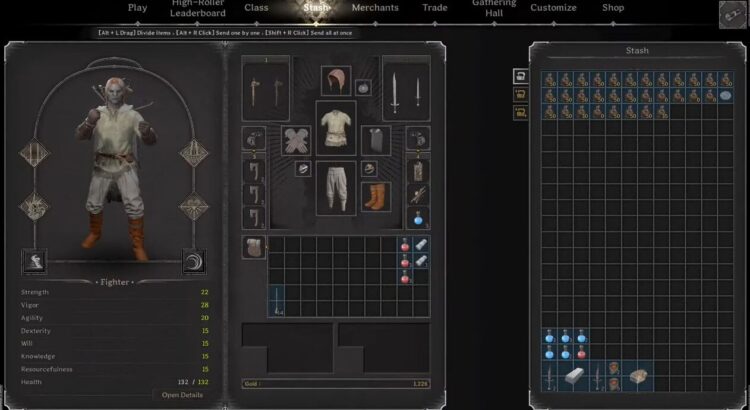In the realm of “Dark and Darker,” where the constant clamor for buffs and nerfs echoes, it’s refreshing to take a moment and ponder which class resides in a harmonious sweet spot, requiring no immediate alterations. As a player deeply immersed in 2v2 battles, my perspective leans towards evaluating class balance within this particular setting.
Wizard:
In the context of 2v2, the wizard appears slightly weaker in Ruins due to the formidable prowess of the ranger. However, when operating with only one teammate, the wizard overall maintains a balanced feel. It’s a testament to the game’s equilibrium that the wizard, despite facing challenges in specific environments, doesn’t emerge as an overpowering force.
Fighters:
Fighters showcase considerable strength, especially when adopting a knockoff ranger playstyle. The intricacies of Plate Longbow fighters countering Rangers add an interesting layer, making them potent adversaries without reaching an annoying level of dominance.
Barbarian:
The barbarian, on the other hand, stands a bit weaker in the balance scale. The absence of Plate, coupled with a general reluctance to build PDR, exposes them to significant damage while attempting to close in on a ranger. This vulnerability places them on the weaker end, urging a reconsideration of their balancing.
Bard:
Bards demonstrate versatility, proving to be decent against most classes. However, their Achilles’ heel surfaces in confrontations with Rangers. The lack of a safe approach or PDR leaves bards vulnerable, warranting a closer look at their overall balance in the 2v2 landscape.
Rogues:
Rogues introduce a unique dynamic, capable of reaching seemingly unreachable spots even with the -20 speed from the Double Jump perk. While they tend to lose in straightforward 1v1 scenarios, their knack for surprise attacks, dropping from the skies unnoticed, injects an element of annoyance and unpredictability into the gameplay.
Rangers:
Rangers emerge as a notable challenge, characterized by their inherent annoyance. The game’s map structure often favors them, offering expansive sightlines that, coupled with their rapid-fire capabilities, can be daunting. The suggestion to address ranged damage across the board, especially for Rangers, underscores the need for a nuanced approach to balance. The intricacies of strafing are acknowledged, but the argument for making melee interactions more interactive resonates.
Warlocks:
Warlocks hover in the realm of okayness, grappling with the significant challenge posed by Rangers. The need for adjustments in their interaction with Rangers signals a potential avenue for fine-tuning their balance without disrupting their effectiveness against other classes.
Cleric:
The cleric stands as a paragon of balance, embodying strength in melee encounters and providing valuable healing support. While formidable, the cleric’s impact in 2v2 is not as overwhelming as it can be in trios, showcasing a commendable balance in their role within different team compositions.
In the spirit of constructive feedback, the call for a reduction in ranged damage’s ubiquity resonates. Singling out Rangers as the primary culprits underscores their dominance in certain scenarios. Proposals to alter the dynamics of ranged attacks and perhaps redefine the role of the wizard in the face of these changes introduce compelling avenues for exploration.
In conclusion, the pursuit of equilibrium in class balance is an ongoing endeavor, intricately woven into the evolving fabric of “Dark and Darker.” The call for measured adjustments, especially in ranged damage dynamics, reflects the community’s desire for a more interactive and engaging gameplay experience. As the game’s landscape continues to shift, finding that delicate equilibrium remains a paramount goal for both players and developers alike.
Personally, I would suggest that balancing of professions, balancing of skills, and balancing of the Dark and Darker Gold and gear markets is especially important.

